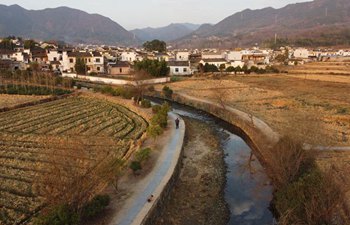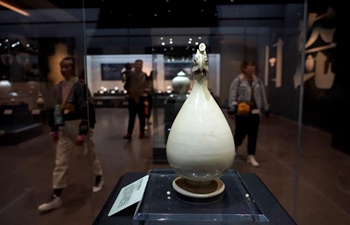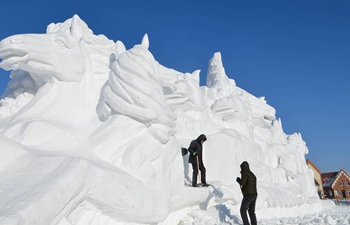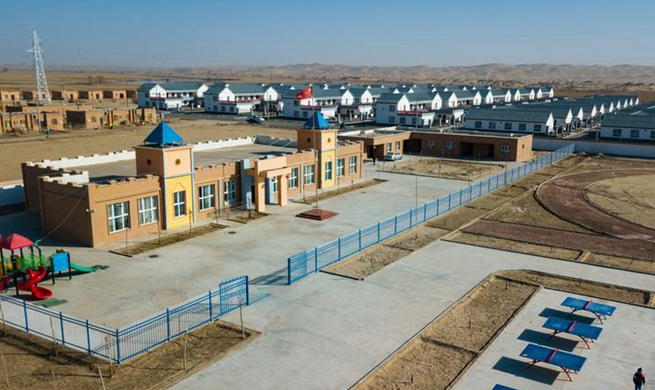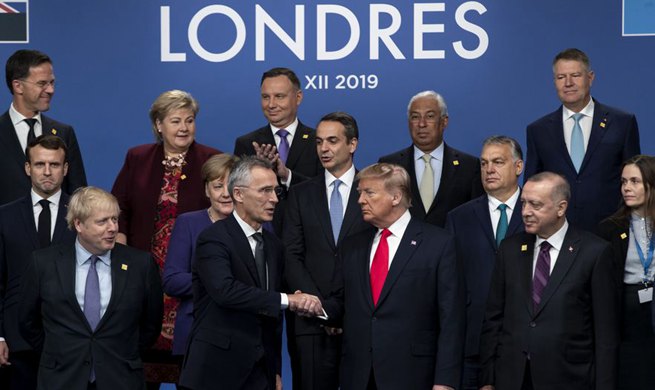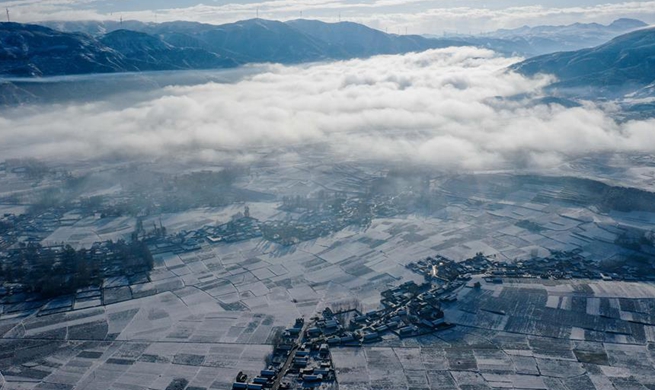TOKYO, Dec. 5 (Xinhua) -- Japanese Prime Minister Shinzo Abe is considering visiting Saudi Arabia and the United Arab Emirates (UAE) as part of a planned trip to the Middle East slated for mid-January, to explain a potential plan for Japan to dispatch its Self-Defense Forces to the region, govern sources said Thursday.
The Japanese government has said it is considering dispatching an SDF plane and patrol vessel to monitor shipping activities and gather information, with the move planned to be independent of a U.S.-led coalition to guard ships traveling through the Strait of Hormuz.
The U.S.-led coalition includes Saudi Arabia and the UAE, however.
Tensions have been rising in the Middle East following the United States pulling out of a 2015 international nuclear accord and slapping fresh sanctions on Iran.
Among other incidents, in June a Japanese-owned tanker was attacked near the Strait of Hormuz, a vital global shipping artery.
By the end of the year, Japan will seek Cabinet approval for the dispatching of an SDF plane and patrol vessel to monitor shipping activities, with the Gulf of Oman, or the Bab el-Mandeb Strait, having been chosen as possible SDF refueling locations.
Japan, who informed Iran a day earlier of the move, said it wants Tehran to ensure that ships can navigate freely in the region, due to its position on the Persian Gulf.
Amid caution on the move being voiced by the ruling Liberal Democratic Party's (LDP) coalition partner Komeito, the possible dispatch may be limited to one year, government sources said.
"We have to set a limit of some sort," Komeito's policy chief Noritoshi Ishida told a press briefing on the matter Wednesday.
While the Strait is a key gateway for oil from the Middle East to reach resource-poor Japan, Japan's pacifist constitution, as opposition party lawmakers have pointed out, may prevent the country from sending troops to a potentially active theater, despite Abe's unpopular and yet-to-be-realized push to amend the constitution and expand the global footprint of Japanese forces.
Article 9 of the constitution states that Japan forever renounces war as a means to settle international disputes and also prohibits Japan from maintaining war potential.
Japan is the world's fourth-largest oil consumer and relies heavily on the Middle East for the majority of its crude oil.
As for Iran's reaction to Japan's potential move, Iranian Deputy Foreign Minister Abbas Araghchi told Japan's public broadcaster NHK that Tehran does not believe that the presence of any foreign forces in the region would help boost stability, security or peace.
Araghchi also said on Tuesday that he had conveyed Iran's stance to Abe when the pair met.
He said that U.S. policies are the root cause of escalating tensions in the Middle East and criticized Washington for imposing "maximum pressure" on Iran and withdrawing from the 2015 nuclear agreement, NHK said.


